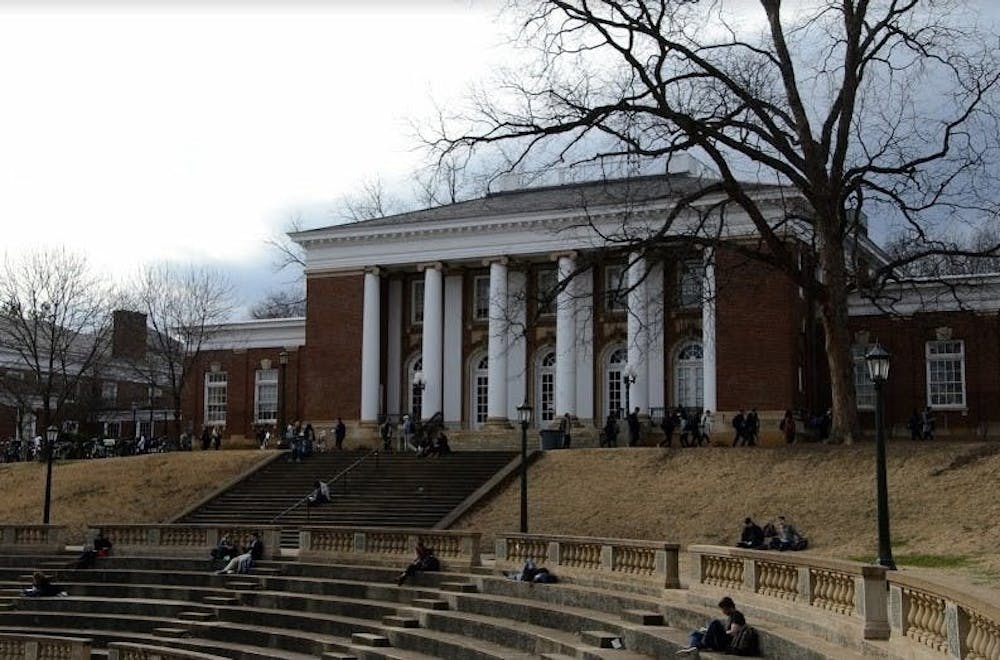University President Jim Ryan announced Wednesday that more than $30 million will be invested towards STEM research and the Carter G. Woodson Institute for African American and African Studies.
Funding will be allocated from the University’s Strategic Investment Fund, which was created to support proposals laid out in the University’s strategic plan. The plan, “A Great and Good University: The 2030 Plan,” was approved by the Board of Visitors in 2019.
“These investments will spur research across Grounds, support faculty positions and help the University of Virginia recruit excellent students who bring diverse perspectives and experiences to the student body,” Ryan said.
The Carter G. Woodson Institute, which houses the University’s African American and African Studies disciplinary major and minor, gained departmental status in 2017.
Of the $16 million in investments supporting the Woodson Institute, $7 million will endow its postdoctoral fellowship program, $3 million will endow a professorship and up to $6 million will be accessible as matching funds for the creation of three bicentennial professorships.
Deborah McDowell, the Chair of the Department of African American and African Studies and Director of the Woodson Institute, said that the $16 million will go towards faculty hiring, enhancements to the fellowship program, support for student internships, and the advancement overall of the diverse intellectual project of the department and the research Institute.
“Our mission is to teach and to advance scholarship in [Africana Studies], broadly speaking, by hiring faculty who are producing cutting edge scholarship — the same faculty who will teach courses and train graduate students and undergraduate students,” McDowell said. “Frankly, this investment will go far to maintain the department/research institute at the levels that are warranted, given our significance in the overall orbit of intellectual life in U. S. higher education. The fellows we have supported occupy among the most distinguished positions in colleges and universities across North America, and the work they have produced has been transformative for the field.”
Ian Solomon, dean of the Frank Batten School of Leadership and Public Policy and member of the University’s Racial Equity Task Force, said he was “thrilled” by the University’s $16 investment in the Woodson Institute, an investment that he believes will “strengthen an already robust program in African and African American studies.”
“This action is representative of our core and enduring values, and reflects the University’s commitment to act on the recommendations made by the Racial Equity Task Force to the Board of Visitors,” Solomon said.
The University’s investments come months after a group of Black student activists submitted a list of demands to the University’s Racial Equity Task Force amid the summer’s nationwide protests for racial justice. Included in the task force’s 12 key initiatives, proposed in July, was a call to endow the Woodson Institute.
Among other measures, the students demanded the University to endow the Woodson Institute and expand it to occupy all of Minor Hall. In addition, the Black Student Alliance also called on the University to increase funding for the Woodson Institute in June in its “Reiteration of Historic, Yet Unmet Demands,” which were circulated widely on social media.
McDowell says that the $16 million investment into the Woodson Institute — which was founded in 1981 and will celebrate its 40th anniversary in 2021 — is the result of 40 years of organized efforts, mainly brought by the leadership and the faculty.
“I assure you that these student demands were not issued to the Racial Equity Task Force independent of consulting with faculty in the know about how universities operate,” McDowell said. “Any suggestion that there is a one-to-one correlation between a list of student demands and the outcome that was announced two days ago is erroneous.”
McDowell emphasized that while there is not a direct link between the most recent demands made over the summer and this endowment, generations of continuous student activism and Africana Studies are intrinsically related.
“I would say without any equivocation, Africana Studies — wherever it exists, in whatever university it exists — simply would not be possible without the activism of students,” McDowell said. “The pressure they have brought over the years, across the country, constitutes the foundation of the field.”
The $15 million supporting research in science, technology, engineering and math will be allocated across five areas — democracy, environmental resilience and sustainability, precision medicine, the brain and neuroscience, and digital technology and society.
“U.Va. intends to build on our current momentum to become an international leader in these important fields of research,” Provost Liz Magill said. “This investment will help to keep us moving in the right direction.”
The University will issue a formal call for research proposals in January.
This article has been updated.





